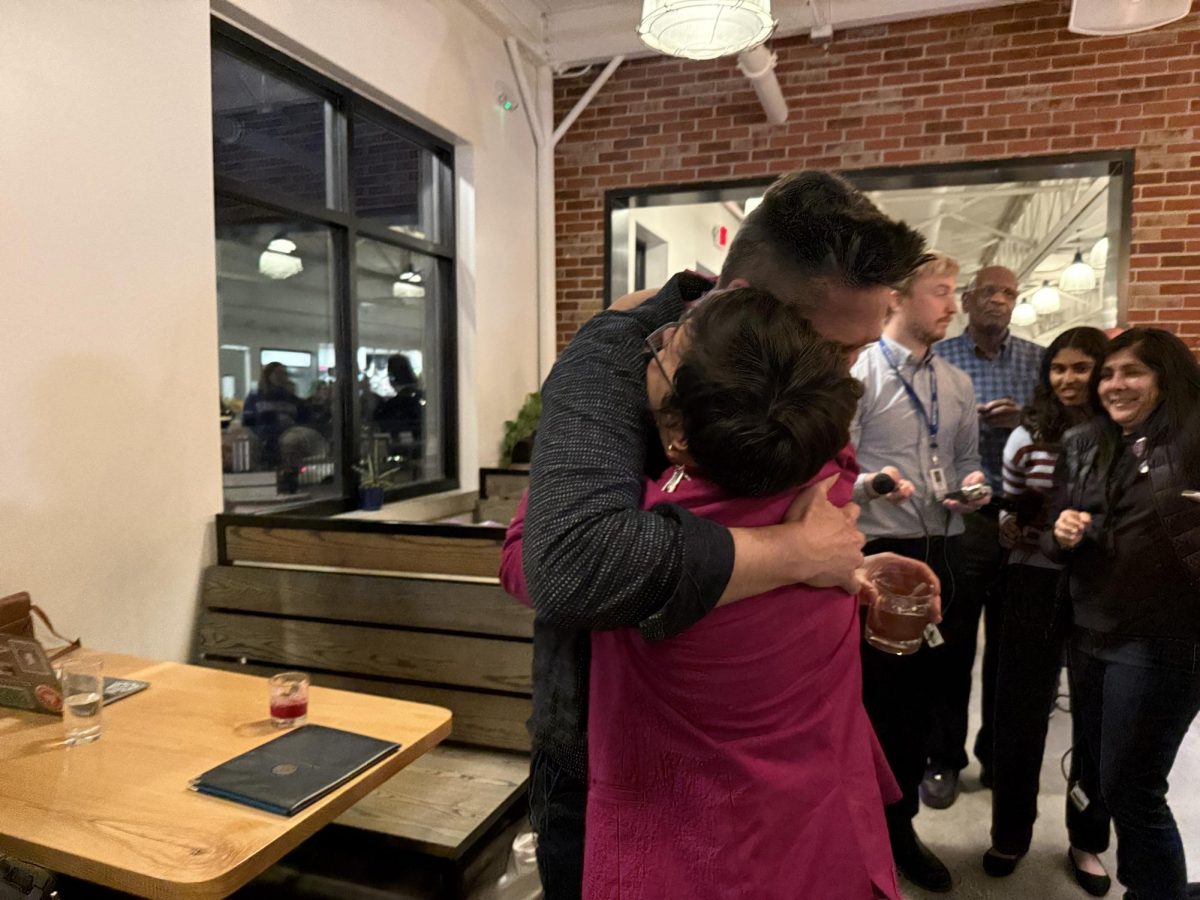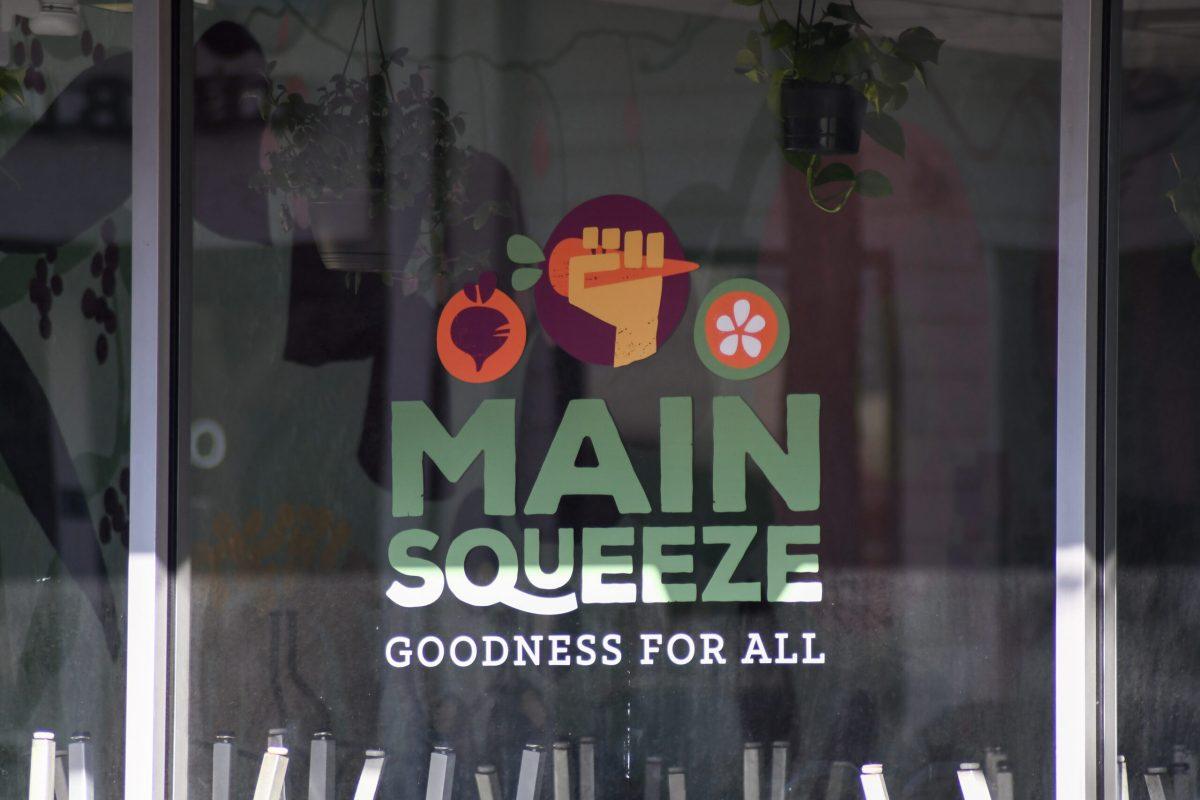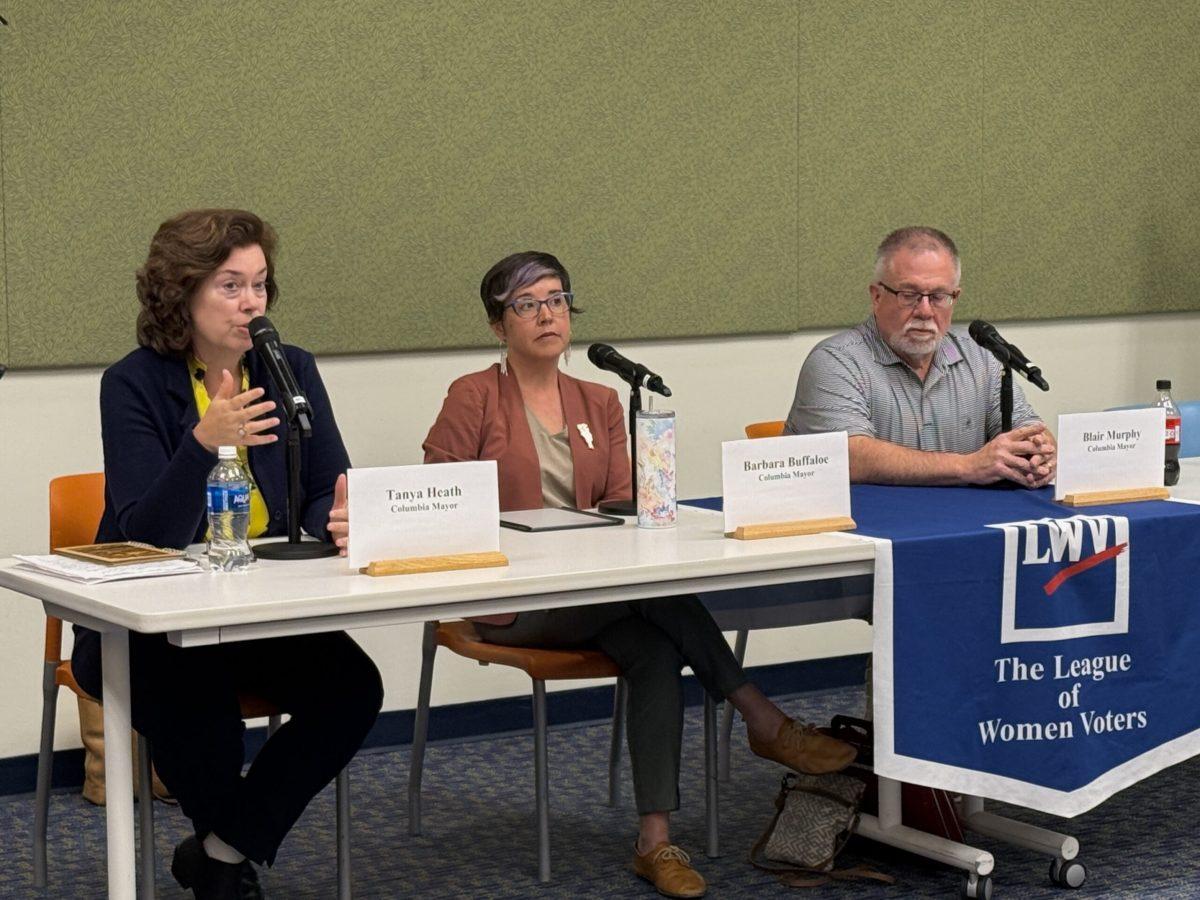When she was in third grade, Laverne Cox was sent to therapy. She had been fanning herself with a peacock fan, embodying Scarlett O’Hara from “Gone With the Wind.” Her teacher, horrified, warned her mother that if Cox’s mother didn’t seek counseling for her son, the then-young boy would end up in New Orleans wearing a dress.
The therapist asked the child about knowing the difference between a boy and a girl.
Cox replied, “There is no difference.”
Cox opened MU’s third annual One Mizzou Week on Monday as the keynote speaker. She was met with a thunderous applause and a standing ovation from a sold-out crowd at the Missouri Theatre, where she proceeded to start the M-I-Z chant.
“There are so many points of view that suggest no matter what I do, I’m not a woman,” Cox, actress and transgender advocate said. “But I do claim my womanhood tonight.”
As the first African-American trans woman to produce her own television show, “TRANSform Me,” and with her acclaimed role in “Orange is the New Black,” Cox has become an icon for gender equality.
Her latest project, “Free CeCe,” is a film about CeCe McDonald, an African-American transgender woman who served 19 months of a 41-month prison sentence for defending herself against a hate crime.
Because of those who achieved so much by overcoming adversities, Cox and others are able to emulate them in a truthful light.
“I want to be in the truth,” she said. “I think my job as an actor is to tell the truth. I see my work outside of acting as a truth-teller, as a storyteller as well.”
Cox told her story of growing up in Mobile, Alabama, where she withstood childhood bullying before finally embracing who she really is — a woman. She also spoke of prevalent issues faced by the transgender community, such as street harassment and homicide.
Senior Caitlyn Stevens said Cox’s lecture, “Aint I a Woman: My Journey to Womanhood” was an important talk that needed to happen for One Mizzou week.
“She’s an inspiration because she is proud of who she is, and a lot of people would shy away, but she’s out there telling everyone about who she is,” Stevens said.
Senior Terra Macken also said that because Cox shared her own personal story, she gave people hope and let people know that they’re not alone in the world.
“I’m taking a risk to tell the truth and the world as I see it,” Cox said. “I take the chance to talk about my life, and I’m just being really truthful and authentic, and I think that’s what people are responding to.”
Cox feels that her work at schools has had the most influence. She said the most important thing kids can do if they’re struggling with gender identity is to stay in school.
“(If) you’re bullied a lot, a lot of people don’t feel safe in school,” Cox said. “Figure out a way to stay in school, and if you can’t, then get your GED so you can still go to college. It’s so important to give transgender people a safe space. I believe that when you can reach young people, you have the potential to change the future and change the world.”
Cox urged the crowded theater to be loving and accepting to one another.
“We have to fight for our lives, and a lot of girls like us are fighting for their lives all across the country everyday. We’re survivors,” Cox said. “At the end of the day, it should be about love. Justice is what love looks like in public, and if we can find something in this world that we truly love, then it can save us.”
On her journey through life, Cox said she has determined that being a woman isn’t something people are necessarily born with, but a trait that can be learned.
“Womanhood isn’t just about gender,” Cox said. “If you’re a gay woman your experiences are completely different and if you’re a trans woman your experiences are completely different. One is not born a woman, one becomes one. You can’t tell someone who they are. Let them tell you who they are.”






